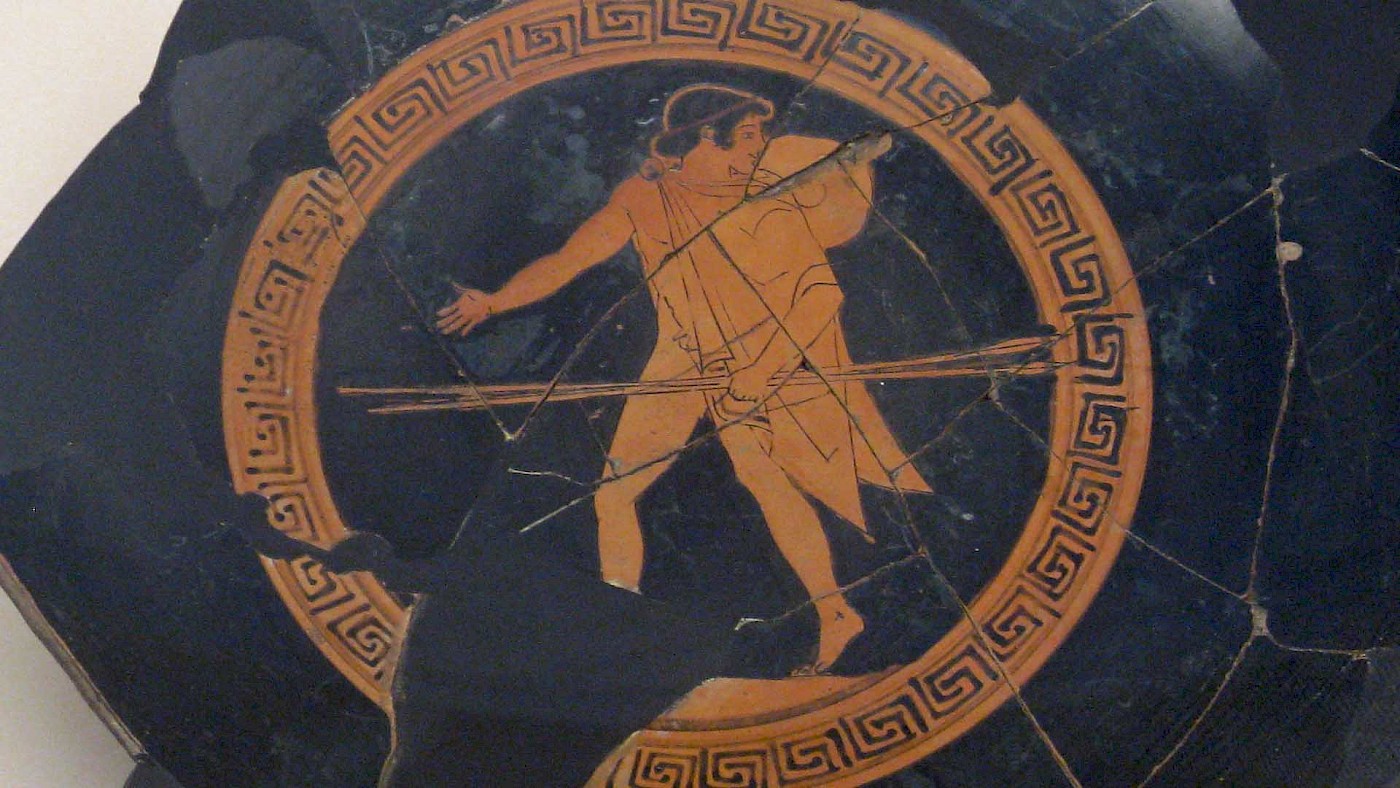The Archaeological Museum of Rhodes has an excellent collection of ancient artefacts, including a large array of beautiful decorative pottery. Above is one example that I want to share with you today, a fragmentary red-figure cup attributed to the so-called Stieglitz Painter and dated to ca. 475–450 BC (i.e. firmly in the Classical period).
The inside of this drinking cup depicts a youth setting out to travel. We know this because he has all the necessary accoutrements. He has a petasos or sun hat, which is on his back (probably suspended by the chin-strap), and which will protect his head and eyes from the Mediterranean sun. He also wears a chlamys or cloak, which will keep him warm and protect him from the elements as necessary.
He is also carrying two spears. This might suggest that he is going out to hunt, but this need not be the case. In the Odyssey, for example, men always take a spear with them when they are going out. Such public bearing of arms seems to have fallen out of favour in the course of the Archaic period, but it’s possible that when someone went out for a longer journey that he would arm himself in some manner.
If the topic is of interest to you, I recommend you read Hans van Wees’s “Greeks bearing arms: the state, the leisure class and the display of weapons in Archaic Greece”, published on pp. 333–378 of the collected volume Archaic Greece: New Approaches and New Evidence (1998), edited by Nick Fisher and Hans van Wees. One of the arguments made in the paper is that as a society becomes more formally organized, its citizens do away with walking around armed in public.
Considering the ongoing and heated debates regarding the right to bear arms in the United States, the contents of this paper can even be considered topical, despite dealing with the ancient world and despite the paper itself having been published nearly twenty years ago.
